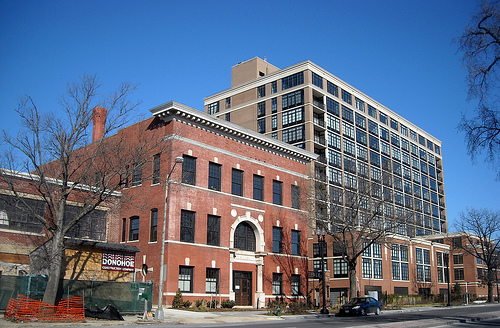The Plural of Anecdote is Not Recovery
 Good micro-level news on the housing front from Matt Yglesias, who notes the revitalization of his Northwest DC neighborhood:
Good micro-level news on the housing front from Matt Yglesias, who notes the revitalization of his Northwest DC neighborhood:
Nowadays we have a few more buildings, including the large complex I live in, but it’s still mostly vacant lots and parking. But as of, say, 18 months ago there were high hopes and big plans around all those spaces. But for a good while now everything been shut down and nobody’s been actually building anything. Now comes the news that one project is back on track with work being done. Certainly a welcome sign for me, and I’d like to think it’s a sign of economic recovery, but I have my doubts.
As well he should. Given that DC’s main industry is the federal government, it’s probably the worst city in America from which to attempt to extrapolate long-term trends based on local happenings. Indeed, once upon a time one would take DC’s growth as a bad sign: an indicator that government was ramping up to deal with crisis. But, since government never ramps down anymore, I’m not sure what to make of it.
One of Matt’s first commenters, DC Nomad, does make a good point, however: “it signals that credit markets are loosening.” As expensive as real estate and development is in the District, that’s almost certainly true. But I’d want more than a couple of projects in one anomalous town to draw even the conclusion that a trend’s afoot.




Reading Arnold Kling this morning:
Kling also recapitulates Steve Verdon’s talking point thus:
The answer is easy. The models were wrong. Even if we believe massive spending must generate some economic activity, we’ll never know exactly how much, or exactly how we would have fared int he counterfactual.
Note also that accepting uncertainty is a component of maturity. To the extent that voters are immature, and unwilling to accept uncertainty, then politicians must pretend otherwise.
Of course, since this is a restart of an earlier project that was able to replace private funding with government funding (HUD) and higher rents due to exploding government employment, it isn’t much of a trend. Let’s see, you get government funding and the project is for housing in a town where government employment is expanding and is expected to explode with the hundreds of healthcare agencies about to be created. Not much of a chance of a failed project for the obviously connected developers.